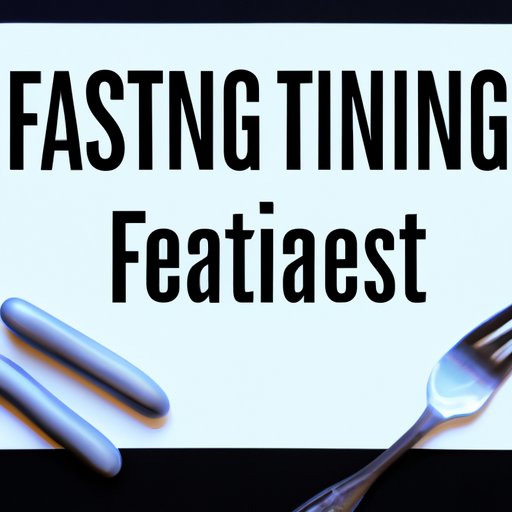
How to Fast Properly: A Comprehensive Guide
Fasting is a practice that has been around for centuries and is still popular today. It involves abstaining from food or certain types of food for a specific amount of time. While fasting has been associated with religious practices, it also has several health benefits. In this article, we will cover the benefits of fasting, different types of fasting, preparation, managing hunger, breaking the fast, and consulting with a health professional.
Benefits of Fasting
There are several benefits of fasting, and they include weight loss, improved digestion, and mental clarity. Fasting helps to reset the body’s metabolic rate and improve insulin sensitivity, leading to weight loss. It also gives the digestive system a break, allowing the body to heal and reduce inflammation. Fasting also enhances mental clarity by improving focus, concentration, and memory.
Types of Fasting
There are different types of fasting, and each has its benefits. Water fasting involves abstaining from all solid food while consuming only water for a specific period. Intermittent fasting involves eating during a specific period and fasting during the remaining period of the day. Juice fasting involves only consuming fresh juice for a particular period and allowing the body to detoxify and heal. Depending on one’s goals, each type of fasting can be suitable.
Preparation
Preparation is critical when it comes to fasting. It is essential to prepare oneself physically, emotionally, and mentally. One should choose the right type of fasting and ensure that they are physically, emotionally, and mentally sound. Proper preparation involves gradually reducing the intake of processed foods and transitioning to the specific type of fasting. Drinking plenty of water to help the body flush out toxins and staying hydrated is also vital.
Managing Hunger
As the body adjusts to fasting, one may experience hunger, discomfort, and anxiety symptoms. Staying busy can help manage these symptoms. Drinking plenty of water and herbal teas can also help alleviate hunger and discomfort. Practicing self-care activities like meditation or yoga can also help reduce anxiety.
Breaking the Fast
Breaking the fast is just as important as the actual fast. The body has adjusted to the fast, and one must take care when breaking it. It is essential to start with a small meal and gradually increase the intake. Eating a hearty meal after a fast can be damaging to the digestive system and cause discomfort. One should break the fast with nutrient-dense food and avoid consuming processed foods.
Consulting with a Health Professional
Fasting is generally safe for most people, but certain conditions may require medical advice before one can fast. For instance, anyone on medication or with a pre-existing medical condition should consult with a doctor before fasting. A doctor can guide one in preparing for the fast, managing any symptoms, and breaking the fast.
Conclusion
In summary, fasting is a beneficial practice that can help with weight loss, improved digestion, and mental clarity. Depending on an individual’s goal, they can choose the type of fasting that suits them best. Proper preparation, managing hunger symptoms, breaking the fast, and consulting with a health professional are all essential aspects of fasting. Remember to fast with caution, and always prepare adequately before starting any fast to prevent any adverse effects.




